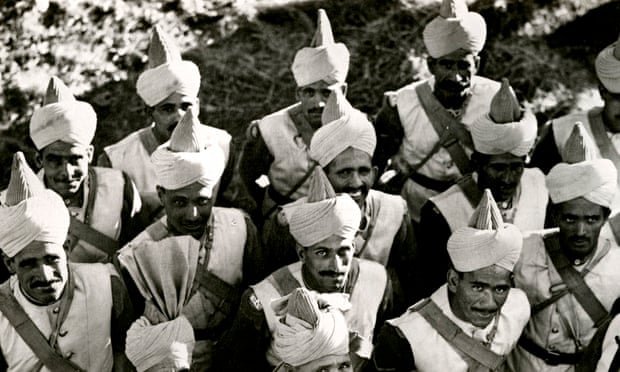Yasmin Khan’s important book reveals how India’s wartime role made partition an inevitability

Through 1940 and 1941, recruitment officers worked their way across the regions of northern India that had traditionally provided troops for the British empire. Indian soldiers had contributed the manpower for maintaining and extending the realm of the king-emperor in faraway London for many decades. Now they would be called on to defend that empire in an hour of existential threat.
The officers soon exhausted the Punjab, the north-west frontier and Rajasthan and headed south, to the very tip of the Indian peninsula. Others worked the high valleys of Nepal, stripping much needed able-bodied men from the mountain communities that were generically, and inaccurately, labelled Gurkhas. A vast force was assembled and sent west into Africa and the Middle East to fight Germans, Italians and their allies, and then to the far east, to combat the Japanese, who dismembered the British empire there in a matter of months in early 1942.
Yasmin Khan has already published an acclaimed work, The Great Partition, on the bloody partition of the British subcontinental empire into India and Pakistan after the second world war. In The Raj at War, she brings the same forensic clarity and even-handed sensitivity to the experience of British India and its vast and varied population during the seven or eight years that preceded independence in 1947.
More
The Raj at War is published by Bodley Head
The officers soon exhausted the Punjab, the north-west frontier and Rajasthan and headed south, to the very tip of the Indian peninsula. Others worked the high valleys of Nepal, stripping much needed able-bodied men from the mountain communities that were generically, and inaccurately, labelled Gurkhas. A vast force was assembled and sent west into Africa and the Middle East to fight Germans, Italians and their allies, and then to the far east, to combat the Japanese, who dismembered the British empire there in a matter of months in early 1942.
Yasmin Khan has already published an acclaimed work, The Great Partition, on the bloody partition of the British subcontinental empire into India and Pakistan after the second world war. In The Raj at War, she brings the same forensic clarity and even-handed sensitivity to the experience of British India and its vast and varied population during the seven or eight years that preceded independence in 1947.
More
The Raj at War is published by Bodley Head
No comments:
Post a Comment